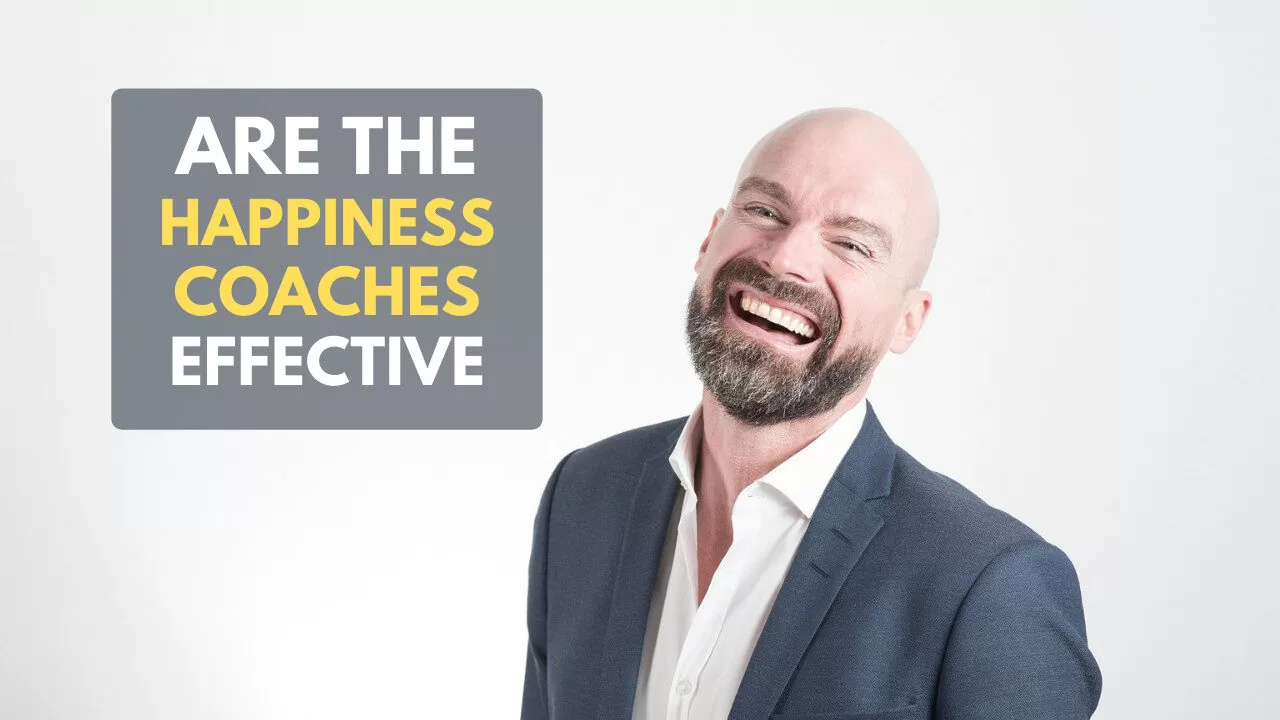📅 22 Aug 2024 • 📖 5 min read
It starts this way. Some cool guys with degrees in psychology from blue-blood universities walk into the conference room and make a presentation to top-level management.By the time they leave, they have convinced the company that they better hand these guys big money on training their workers to be happy, or else they are doomed.
These guys sell happiness coaching at workplaces.
Are happiness coaches effective?
Yes. Happiness coaches are effective when they have a strong background in positive psychology. Their methods work because they are based on research. The happiness interventions they recommend engaging in on a regular basis are intentional activities that can boost one’s immediate happiness as well as overall life satisfaction.
The Three Good Things (TGT) is one such happiness intervention.
What do the happiness coaches do?
Authentic happiness coaches train people on science-backed activities that, when practiced as a routine, can raise their happiness levels. They do not ask their clients to give up negative thinking. Instead, they focus on how to increase qualities like resilience and grit, gratitude and altruism, and self-love and self-compassion, among others.
They have strong science-backed arguments to support why we need to strive to be happier in our lives.

The Fake Happiness Gurus
The majority of fake happiness gurus promote toxic positivity. They manipulate their vulnerable victims, convincing them that if they only think positively, all of their problems and failures will be replaced with solutions and success. Furthermore, they blame their trainees for their inability to achieve success and happiness.
This is the usual protocol they follow to sell happiness at work:
Happiness makes the worker more productive, more creative, and more worthy of leadership. Happiness makes the company more profitable, more efficient, and more employee-friendly.
And they pummel their happiness doctrine with principles from Influence: The Psychology of Persuasion — the seminal bestseller for three decades from Dr. Robert Cialdini.
Here are some arguments according to Influence principles. If the company takes steps to make its workers happy, the workers will reciprocate by helping the company increase profits.
The concept that cheerful workers make a happy company comes from some of the best psychology researchers on the planet — so the message comes from top-level authority.
There is ample proof that companies around them are already implementing happiness coaching in the workplace, and they don’t want to be left behind.
Fake Guru Ploy: The Responsibility Shift
What this does is take the essential responsibility right down to the worker’s core — if they aren’t happy, then they better get themselves happy.
Else, the company will make losses in terms of growth and bottom line. Also, their colleagues will suffer the side effects of their unhappiness, and it will compromise their performance.
And all this because they were not happy.
So, the curt, unsaid instruction is:
Your personal problems be damned. Be happy when you’re at work. Behave happy. Look happy.
But why do the happiness salesmen go knocking at the corporate doors for selling their wares?
Because the companies have dedicated funds for corporate social responsibilities and employee training and education. The money is steady there. So, most of these psychologist coaches take their wares there.
Exceptional Lives of Authentic Happiness Coaches
I think anyone can see this distinct approach. There’s nothing too surprising there.
What I feel now is that some of the best ones are living dual lives — selling out to the companies and still finding time to do great research.
However, the rest, perhaps the majority, aren’t least bothered about academia, or their perception of academia — they are full-throttle happiness salesmen. For these guys, the venture usually starts with the publishing of a book that is promoted to the extreme via all the top advertising channels.
This often announces the birth of a science-backed coaching star. You shouldn’t be surprised to know that a few of these books are authored by ghosts.
But my heart goes out to the sincerest ones there.
Those who dedicate their lives to academia, take the peer-thrown barbs, engage patiently with the public, be part of free lectures and social initiatives, write amazing books that will easily stand the test of time, and give a hoot to the companies.
I just have to mention one name in that league there — Scott Barry Kaufman. Just visit his resource page and catch up on a few of his works — it will blow you away by the amazing depths of his work on creativity, intelligence, and imagination.
What positive psychology has done for psychology is small scale compared to what it has done for entrepreneurial psychologists.
They can now beat the whole coaching industry down with science on their side. They are the coaching industry’s new rockstars. A few of them are even going the Tony Robbins way — brilliant fireworks, thumping music, dancing girls, and high-wire acrobatics.
Final Words
Do you know what a gawker is? A gawker is a person who stares stupidly at a spectacle without much intelligent awareness.
That’s what I am — just a gawker. Not even a front-row seated concert-goer who sings along in unnoticeable tones just 20 feet from stardom.
Just a gawker. So, take no offense at this cheeky post; it’s probably just noise.
Gaslighting is psychological brainwashing. Check out the 10 Subtle Signs of Gaslighting and learn to spot a gaslighter.
• • •
√ If you liked it, please spread the word.